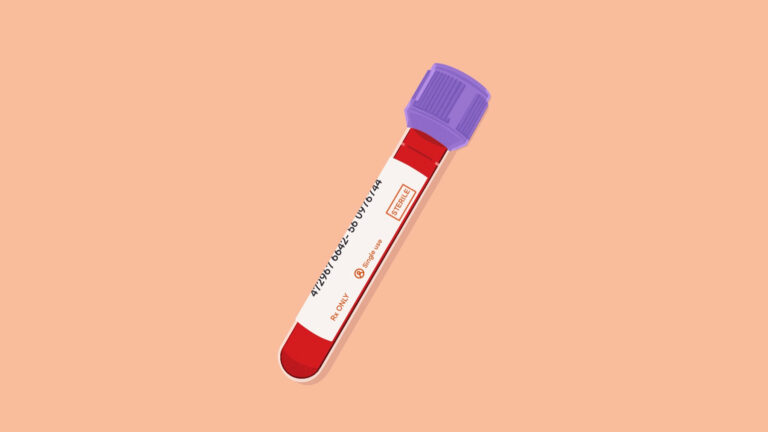In less than a year’s time, the fitness industry has been transformed.
Unprecedented is an understatement; almost every day, there was news that altered the landscape as we know it.
So today, in an attempt to make sense of months that blurred together, we’re looking back. Here are the headlines that leave no doubt, 2020 changed fitness forever.
Setting the Scene
In the final months of 2019, and early in 2020, a few fitness storylines stood out.
With $285M in new funding, ClassPass became 2020’s first unicorn. After its IPO and ill-fated Christmas commercial, Peloton still had a lot to prove. Meanwhile, Xponential Fitness and F45 Training planned public offerings of their own.
Around the same time, Barry’s was reportedly shopping itself for $700M. Equinox added an investment to fuel its forthcoming digital platform. Flywheel shuttered its at-home business. Then, Town Sports International planned to acquire Flywheel’s studio business.
The Shutdown Begins
On March 13, President Trump declared a national emergency. By March 16, most major fitness chains had closed. Soon, ClassPass saw its global revenue fall by 96%. Similarly, MINDBODY reported that 95% of its 60K fitness and wellness partners were shut down.
The Industry Pivots
Posting free content online was the stopgap solution to temporary stay-at-home orders. As time went on, brands needed a new business model to survive. When layoffs hit, fitness professionals transformed into digital creators, setting the stage for widespread disruption to come.
Home Fitness Takes Hold
With gyms closed, interest in home fitness equipment increased by 500%. Free weights sold out while Peloton, Mirror, Tonal, and many others experienced record demand. Unsurprisingly, apps like Strava, Nike Training Club, and MapMyRun saw downloads surge.
Rogue Rises
As demand skyrocketed, Rogue Fitness scaled up. Since March, the Columbus, Ohio-based fitness equipment manufacturer doubled its workforce, increased its minimum wage to $25/hour, operated around the clock, and began making PPE for frontline workers.
Gyms Struggle
As spring turned to summer, prolonged shutdowns bankrupted 24 Hour Fitness, Gold’s Gym, Flywheel Sports, Town Sports, Cyc Fitness, YogaWorks, and Youfit. By some estimates, gyms have lost $14B in revenue since March. By year’s end, 25% of US gyms could close for good.
CrossFit Changes Hands
In a whirlwind of events, CrossFit saw its sponsors flee and its community revolt — leading founder and CEO Greg Glassman to sell off his fitness empire. Now, with Eric Roza—a seasoned executive and bonafide CrossFitter (athlete, coach, and affiliate owner)—at the helm, the $4B brand is eyeing a turnaround.
lululemon x Mirror
A move with implications across retail, fitness, and technology, lululemon acquired Mirror for $500M in cash. So far, so good — Mirror is on pace to do more than $150M in revenue this year. As Mirror founder and CEO Brynn Putnam shared on the Fitt Insider podcast, the companies were simply stronger together than apart.
Amazon Enters, Exits Fitness
In September, the newly announced Amazon “Prime Bike” sold out, causing Peloton’s stock to drop. Then, Amazon pulled the plug on Echelon’s so-called Prime Bike, scrubbing it from the site and saying: “This bike is not an Amazon product or related to Amazon Prime… Echelon does not have a formal partnership with Amazon.”
Recovery Booms
Preparing for and recovering from exercise has created a multi-billion-dollar category. Just this year, Oura Ring added $28M in funding, Hyperice secured $47M at a $700M valuation, and WHOOP led the way, raising $100M at a $1.2B valuation. From wearables to sleep and mindfulness, recovery is all-encompassing, making it all the more lucrative.
SoulCycle Stumbles
Last year, boycotts overshadowed the launch of SoulCycle’s at-home bike. This year, shutdowns stunted its studio business as delays plagued its digital platform. More recently, a report on infighting, discrimination, and a toxic culture has raised red flags. Now, with a new CEO, the company hopes to start anew.
Investors Flock to Fitness
Since March, investors have poured more than $1B into digital and connected fitness companies, including Zwift landing $450M, ICON Health & Fitness adding $200M, Tonal securing $110M, Tempo raising $60M, and Freeletics closing $25M. In related news, Strava’s $110M funding round valued the company at more than $1B.
Apple Unveils Fitness+
After announcing plans for a fitness subscription this spring, Apple has officially launched Fitness+. Integrated with Apple Watch and Apple Music, the service will cost $9.99/month or $79.99/year. Fitness+ has been painted as Apple’s “Peloton killer,” but that take is as lazy as it is misinformed. We broke it all down in Issue No. 97 and No. 76.
Peloton Pedals Ahead
In January, Peloton was worth $8B. Nine months and one pandemic later, Peloton’s stock is up some 300% with a market cap of $36B —a number on par with the value of the entire US fitness industry in 2019. Now, its biggest problem is keeping up with demand as it fends off a growing number of connected fitness competitors.
Looking to 2021
As impactful as this year was, the next-order effects still need to play out. Will members return to gyms? Can Peloton sustain its trajectory? And will digital fitness democratize access, helping more people get moving? Time will tell.
🎙 On the Podcast
This week, on the Fitt Insider podcast, we’re excited to present another edition of Startup Spotlight — a recurring series where we speak with early-stage founders working on fitness and wellness startups.
Episode 61: Lola Priego, founder of Base — where they’re using at-home blood testing to improve diet, stress, sleep, and brain fog.
This conversation covers:
- putting health in the consumer’s hands
- targeting customers beyond the realm of biohackers
- raising $3.5M with a team of only five employees as a first-time founder
Listen to the full episode here.
🥇Adapting on the Fly
As our lead story makes abundantly clear, coronavirus forced countless companies to adapt on the fly. From brick-and-mortar studios to digital platforms, here’s how some brands forged ahead.
Orangetheory Fitness. After temporarily closing 1,400 studios and laying off staff, OTF is expanding, opening more than 30 new studios since August. Only two studios have permanently closed, and 90% of studios are open at some capacity.
Cure.fit. Prior to 2020, Cure.fit raised more than $200M to build an all-in-one health and fitness ecosystem. In March, it secured another $200M, doubling down on its digital platform while adding 100K paid subscribers. Going forward, Cure.fit plans to improve its virtual offering, perfect a hybrid model, and consolidate local gyms under its network.
AARMY. With studios in NYC and LA, the pandemic accelerated the launch of AARMY’s digital platform. Now, thousands of subscribers pay $35/month or $350/year for its content subscription, boasting a retention rate of 88%. An added bonus, the company has earned $450K from merch sales.
obé fitness. To stand out from the crowd, obé introduced workout parties so friends can exercise together. It has also found success in “eventizing” live, themed workouts — resulting in 3–10x the viewership of on-demand classes.
Echelon Fitness. Peloton isn’t the only smart bike maker to thrive during lockdown. Echelon, a cheaper, more readily available stationary bike, has seen sales surge 700% during the pandemic. As the company ramped up production, it also released new products, including rowers, treadmills, and “Reflect”, a Mirror-like workout screen.
📰 News & Notes
- The Well opened a country retreat.
- Spinning® files patent infringement suit against Peloton.
- Life Time will bundle Apple Fitness+ with its gym membership.
- Researchers have reversed aging… in mice. [Reread: The End of Aging]
- In Europe, bikes will outsell cars two to one by 2030. [Reread: Parks & Rec]
- Microdosed psychedelic supplements have arrived. [Reread: Psychedelic Wellness]
💰 Money Moves
- Blueprint, a data-driven mental health platform, received $3.4M in a seed round led by Bonfire Ventures.
More from Fitt Insider: The Growing Mental Health Crisis - Boulder-based Pocket Outdoor Media, publisher of outdoors and endurance sport magazines, added $5.27M to its Series A round.
- Simple, a Cypress-based digital nutrition platform, raised €4.1 million ($4.97M) in Series A funding.
More from Fitt Insider: The Trillion-Dollar Question - Kryo, the company behind ChiliSleep—makers of a temperature-controlled sleep system called ChiliPAD—merged with sleep tech company Ebb Therapeutics and raised $37M in new funding.
More from Fitt Insider: The Big Business of Sleep - Climate-friendly snack brand Planet FWD landed $2.5M in a seed round led by Emerson Collective.
- Fody Foods Co., makers of gut-friendly vegan and gluten-free food products, secured $8.5M in a funding round led by District Ventures Capital and Export Development Canada.
- Fermented protein brand Nature’s FYND added $45M in strategic financing from Oxford Finance and Trinity Capital.
- Cityblock Health, a healthcare provider expanding access to lower-income communities, secured $160M in a funding round led by General Catalyst, valuing the company over $1B.
More from Fitt Insider: Our conversation with General Catalyst managing partner Holly Maloney. - DC-based juice chain Pureé Juice Bar acquired local competitor JRINK.
- Modern Health, a digital mental health platform catering to employers, raised $51M in a Series C round led by Battery Ventures, valuing the company over $500M.
More from Fitt Insider: Peak Burnout - Digital health startup Well, creators of an app delivering personalized health guidance, secured $40M in a Series A round from General Catalyst, investor John Doerr, and others.
- Remilk, an Israeli lab-produced dairy company, closed a $11.3M funding round led by fresh.fund.
More from Fitt Insider: The Quest for Cow-Free Milk - Health-focused baby food company Serenity Kids raised $3M in a funding round seeing participation from Wild Ventures, Ben Greenfield, and others.
- Clevr Blends, a wellness startup creating instant oatmilk lattes, received a strategic investment from Duchess of Sussex Meghan Markle.






